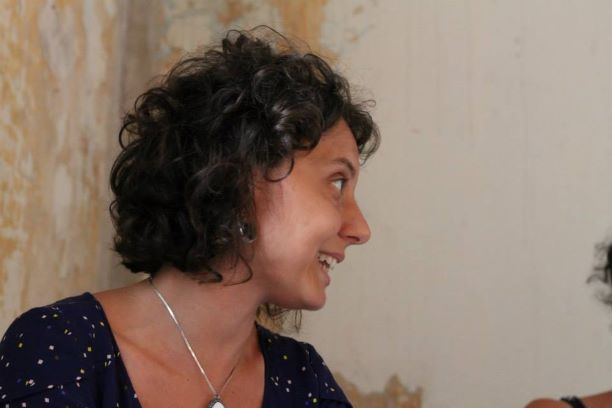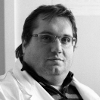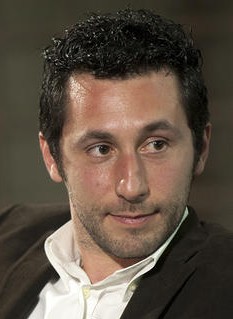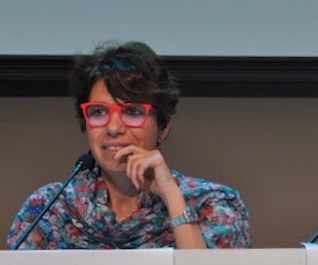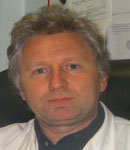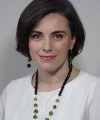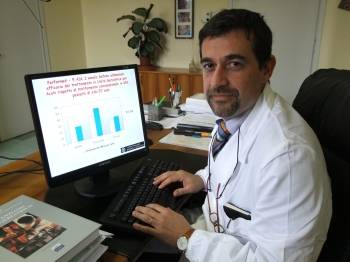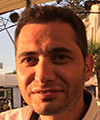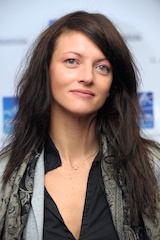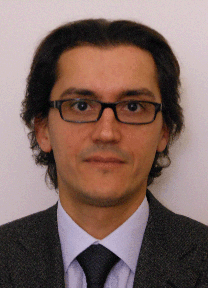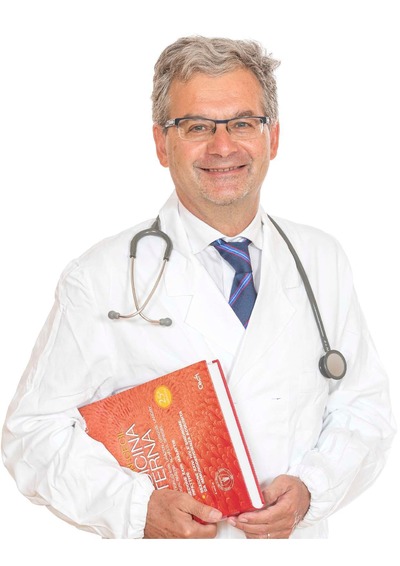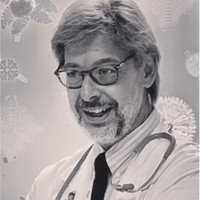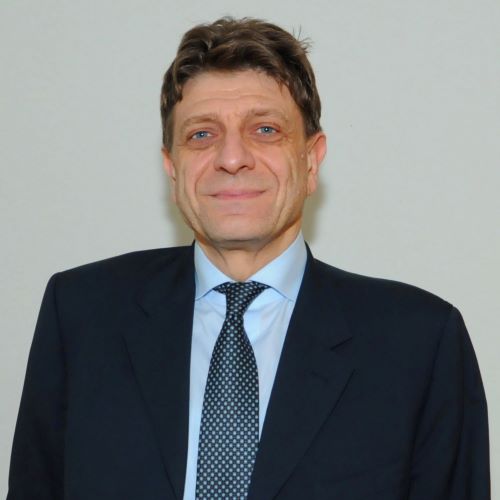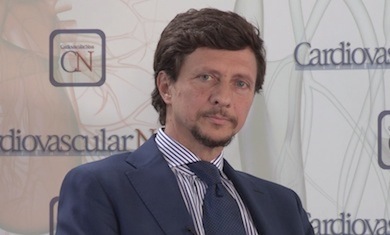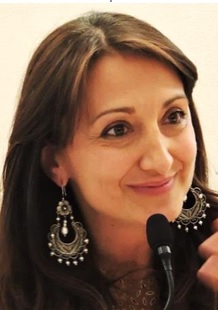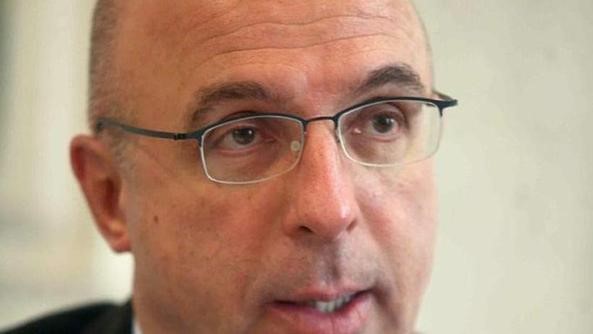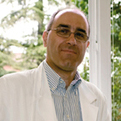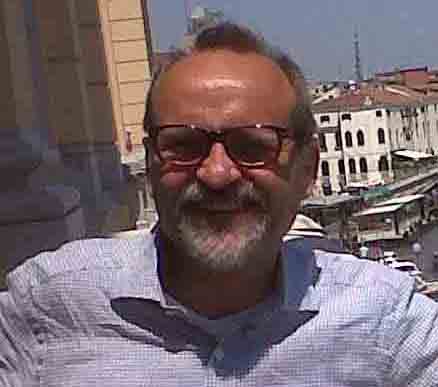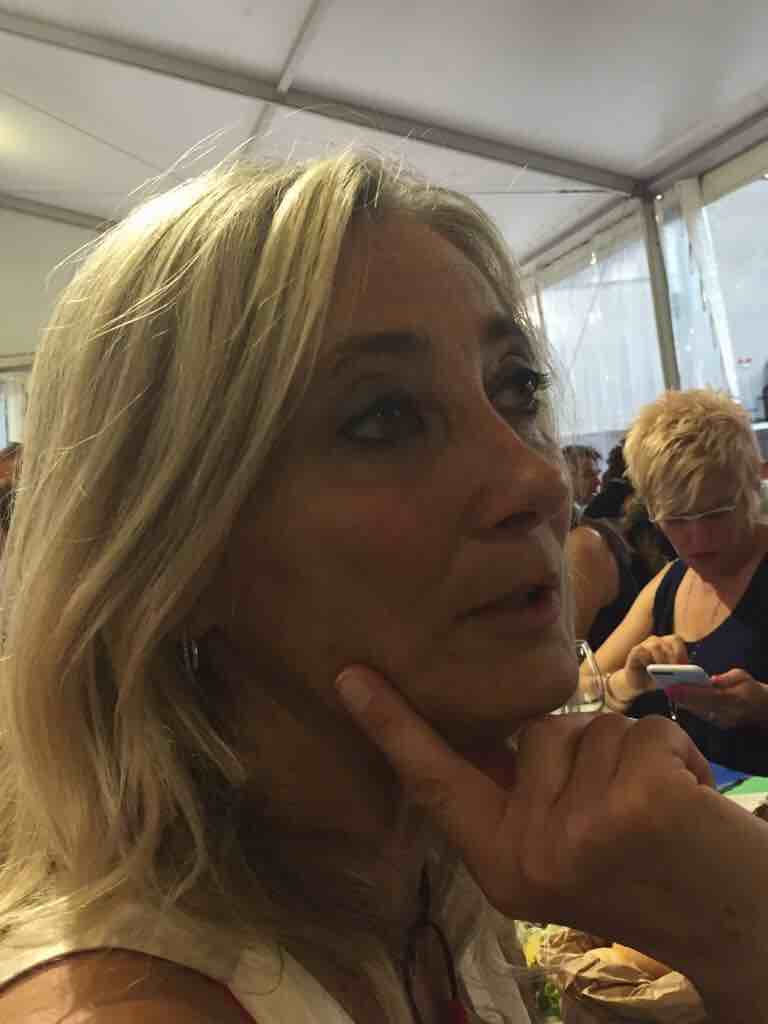Studying at the University of Verona
Here you can find information on the organisational aspects of the Programme, lecture timetables, learning activities and useful contact details for your time at the University, from enrolment to graduation.
Academic calendar
The academic calendar shows the deadlines and scheduled events that are relevant to students, teaching and technical-administrative staff of the University. Public holidays and University closures are also indicated. The academic year normally begins on 1 October each year and ends on 30 September of the following year.
Course calendar
The Academic Calendar sets out the degree programme lecture and exam timetables, as well as the relevant university closure dates..
| Period | From | To |
|---|---|---|
| INF VR - 2° anno 1° sem | Oct 2, 2018 | Dec 21, 2018 |
| INF VR - 1° anno 1° sem | Oct 9, 2018 | Dec 21, 2018 |
| INF VR - 3° anno 1° sem | Oct 22, 2018 | Dec 21, 2018 |
| INF VR - 3° anno 2° sem | Jan 28, 2019 | Mar 22, 2019 |
| INF VR - 1° anno 2° sem | Feb 4, 2019 | Apr 5, 2019 |
| INF VR - 2° anno 2° sem | Apr 29, 2019 | Jun 28, 2019 |
| Session | From | To |
|---|---|---|
| INF VR - sessione invernale 1° - 2° anno | Jan 7, 2019 | Jan 31, 2019 |
| INF VR - sessione invernale 3° anno | Jan 7, 2019 | Jan 25, 2019 |
| INF VR - sessione estiva 3° anno (1^ parte) | Mar 25, 2019 | Apr 5, 2019 |
| INF VR - sessione estiva 1° anno (1^ parte) | Apr 8, 2019 | Apr 18, 2019 |
| INF VR - sessione estiva 2° anno | Jul 2, 2019 | Jul 31, 2019 |
| INF VR - sessione estiva 3° anno (2^ parte) | Jul 15, 2019 | Jul 31, 2019 |
| INF VR - sessione estiva 1° anno (2^ parte) | Jul 23, 2019 | Jul 31, 2019 |
| INF VR - sessione autunnale 1°-2°-3° anno | Sep 2, 2019 | Sep 27, 2019 |
| Session | From | To |
|---|---|---|
| INF - SESSIONE AUTUNNALE | Oct 1, 2019 | Nov 30, 2019 |
| INF - SESSIONE PRIMAVERILE | Mar 1, 2020 | Apr 30, 2020 |
| Period | From | To |
|---|---|---|
| Festa di Ognissanti | Nov 1, 2018 | Nov 1, 2018 |
| Festa dell’Immacolata | Dec 8, 2018 | Dec 8, 2018 |
| Vacanze di Natale | Dec 22, 2018 | Jan 6, 2019 |
| Vacanze di Pasqua | Apr 19, 2019 | Apr 23, 2019 |
| Festa della liberazione | Apr 25, 2019 | Apr 25, 2019 |
| Festa del lavoro | May 1, 2019 | May 1, 2019 |
| Festa del Santo Patrono | May 21, 2019 | May 21, 2019 |
| Festa della Repubblica | Jun 2, 2019 | Jun 2, 2019 |
| Description | Period | From | To |
|---|---|---|---|
| INF VR - 2° anno 1^ esp | INF VR - 2° anno 1^ esp | Feb 4, 2019 | Apr 5, 2019 |
| INF VR - 3° anno 1^ esp | INF VR - 3° anno 1^ esp | Apr 8, 2019 | May 24, 2019 |
| INF VR - 1° anno 1^ esp | INF VR - 1° anno 1^ esp | Apr 29, 2019 | Jun 7, 2019 |
| INF VR - 3° anno 2^ esp | INF VR - 3° anno 2^ esp | Jun 3, 2019 | Jul 12, 2019 |
| INF VR - 1° anno 2^ esp | INF VR - 1° anno 2^ esp | Jun 17, 2019 | Jul 19, 2019 |
| INF VR - 2° anno 2^ esp | INF VR - 2° anno 2^ esp | Sep 2, 2019 | Oct 9, 2019 |
| INF VR - 3° anno 3^ esp | INF VR - 3° anno 3^ esp | Sep 4, 2019 | Oct 16, 2019 |
Exam calendar
Exam dates and rounds are managed by the relevant Medicine Teaching and Student Services Unit.
To view all the exam sessions available, please use the Exam dashboard on ESSE3.
If you forgot your login details or have problems logging in, please contact the relevant IT HelpDesk, or check the login details recovery web page.
Should you have any doubts or questions, please check the Enrollment FAQs
Academic staff
 marialivia.alga@univr.it
marialivia.alga@univr.it
 elisabetta.allegrini@aovr.veneto.it
elisabetta.allegrini@aovr.veneto.it
Arici Cecilia
 cecilia.arici@univr.it
cecilia.arici@univr.it
 + 39 045 812 8266
+ 39 045 812 8266
 michele.bertani@univr.it
michele.bertani@univr.it
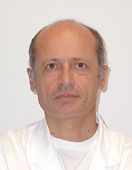
Bisoffi Zeno
 zeno.bisoffi@sacrocuore.it
zeno.bisoffi@sacrocuore.it
 +390456013326
+390456013326
 luisa.bissoli@mail.azosp.vr.it
luisa.bissoli@mail.azosp.vr.it
 federica.bonato@aor.veneto.it
federica.bonato@aor.veneto.it
Cunico Laura
 laura.cunico@univr.it
laura.cunico@univr.it
 0444752922
0444752922
 stefania.danese@univr.it
stefania.danese@univr.it
 francesca.defanti@univr.it
francesca.defanti@univr.it
 stefano.detogni@univr.it
stefano.detogni@univr.it
 jessica.longhini@univr.it
jessica.longhini@univr.it
 045 8122124
045 8122124
 fpecoraro@ospedalepederzoli.it
fpecoraro@ospedalepederzoli.it
 nicola.pelizzari@univr.it
nicola.pelizzari@univr.it
Pighi Michele
 michele.pighi@univr.it
michele.pighi@univr.it
 0458122320
0458122320
 sara.pilotto@univr.it
sara.pilotto@univr.it
 zenogabriele.poli@univr.it
zenogabriele.poli@univr.it
 er.vedovi@virgilio.it
er.vedovi@virgilio.it
 elisabetta.veronese@aovr.veneto.it
elisabetta.veronese@aovr.veneto.it
 liria.veronesi@univr.it
liria.veronesi@univr.it
 tamara.zerman@univr.it
tamara.zerman@univr.it
 lzivelonghi@aulss9.veneto.it
lzivelonghi@aulss9.veneto.it
Study Plan
The Study Plan includes all modules, teaching and learning activities that each student will need to undertake during their time at the University.
Please select your Study Plan based on your enrollment year.
1° Year
| Modules | Credits | TAF | SSD |
|---|
Pathophysiology applied at Nursing
Biomolecular fondamentals of life
Morphological and functional fundamentals of life
General and methodological nursing
Health and safety promotion
English for Nursing
Clinical practice (1st year)
2° Year activated in the A.Y. 2019/2020
| Modules | Credits | TAF | SSD |
|---|
Application of diagnostic and therapeutic processes
Chronic clinical nursing care
Clinical nursing care in surgical area
Clinical nursing care in medical area
Relationship in nursing care
3° Year activated in the A.Y. 2020/2021
| Modules | Credits | TAF | SSD |
|---|
Maternal and paediatric nursing care
Critical nursing care
Evidence based nursing
Health organizations and care processes
Legal, bioethic and deontological principles of professional practice
Clinical practice (3rd year)
| Modules | Credits | TAF | SSD |
|---|
Pathophysiology applied at Nursing
Biomolecular fondamentals of life
Morphological and functional fundamentals of life
General and methodological nursing
Health and safety promotion
English for Nursing
Clinical practice (1st year)
| Modules | Credits | TAF | SSD |
|---|
Application of diagnostic and therapeutic processes
Chronic clinical nursing care
Clinical nursing care in surgical area
Clinical nursing care in medical area
Relationship in nursing care
| Modules | Credits | TAF | SSD |
|---|
Maternal and paediatric nursing care
Critical nursing care
Evidence based nursing
Health organizations and care processes
Legal, bioethic and deontological principles of professional practice
Clinical practice (3rd year)
Legend | Type of training activity (TTA)
TAF (Type of Educational Activity) All courses and activities are classified into different types of educational activities, indicated by a letter.
Clinical nursing care in medical area [Matricole dispari] (2019/2020)
The teaching is organized as follows:
MEDICINA INTERNA
Credits
2
Period
INF VR - 2° anno 1° sem
Location
VERONA
Academic staff
MALATTIE INFETTIVE
Credits
1
Period
INF VR - 2° anno 1° sem
Location
VERONA
Academic staff
Zeno Bisoffi
Learning outcomes
The course focuses on care about patients with chronic medical problems during stability and instability spans (heart failure, IMA and angina, COPD and asthma). The approach considers the contents and the care ways to activate specific self-help behaviors considering that most of the patients with chronic illness live at home and the hospitalization time is very short. Patient problems will be addressed by considering their evolution, the evaluation of the patient and the choice of care interventions based on the evidence, appropriateness and patient’s needs. The instability/worsening will be approached with an assistance protocol. The disease impact and experience on patient’s and family life will be considered and the rehabilitative and palliative aspects will be explored considering the symptoms in the advanced stage (eg dyspnoea).
Program
------------------------
MM: MALATTIE CARDIOVASCOLARI
------------------------
Course table of contents Chapter 1 Anatomy of the heart and vessels Chapter 2 Cardiovascular physiology, and bases of hemodynamics The cardiac cycle Bases of electrocardiography Pulmonary gas exchange Tissue perfusion Chapter 3 Diagnostic techniques based on physiopathology Electrocardiogram, stress test and Holter-loop recorder Chest X-ray and CT scan Echocardiogram SPECT Chapter 4 Ischemic heart disease Epidemiology and risk factors Atherosclerosis and chronic coronary artery disease Acute coronary syndromes Acute myocardial infarction Myocardial revascularization techniques Chapter 5 Basis of electrocardiography Syncope and arrhythmias Syncope Brady and tachy arrhythmias Chapter 6 Heart failure, heart valve disease and cardiomyopathies Cardiac dyspnea Right and left heart failure Cardiomyopathies Valve heart disease Chapter 7 Invasive Cardiology
------------------------
MM: INFERMIERISTICA CLINICA MEDICA
------------------------
Night support and sounds’ evaluation Main problems’ supporting management or cardiovascular and respiratory diseases’ surveillance
------------------------
MM: PNEUMOLOGIA
------------------------
The course in Pulmonology for the academic year 2017/18 will be focused on the following topics: 1) Introduction to respiratory apparatus pathologies and diagnosis; 2) Acute respiratory insufficiency and nurse's role; 3) Chronic respiratory insufficiency and long-term oxygen-therapy; 4) Chronic Obstructive Bronchopneumopathy and OSAS; 5) Bronchial asthma; 6) Non-invasive ventilation support; 7) Community pneumonia and antibiotic therapy.
------------------------
MM: MEDICINA INTERNA
------------------------
Cardiovascular risk factors: arterial hypertension, dyslipidemias, obesity: physiopathology and clinical features of major clinical manifestations of diseases Arterisclerosis: physiopathology and clinical features Chronic heart failure: physiopathology and clinical features Anemias: classifications, physiopathology and clinical features of anemias due to nutritional deficiencies, hemolytic anemias, anemia of chromic diseases Oncohematologic diseases: leukemias and lymphomas, multiple myeloma, mielodysplastic syndromes Thrombotic and hemorragic diseases: physiopathology and clinical features Rheumatologic diseases: lupus erythematosus, rheumatoid arthritis, scleroderma, gout and septic arthritits and major diseases of connective tissue: physiopathology and clinical features.
------------------------
MM: ONCOLOGIA MEDICA
------------------------
Tumour growth and markers Targeted therapies Colon cancer Lung cancer Breast cancer
------------------------
MM: MALATTIE INFETTIVE
------------------------
Hospital infections: the most frequent, their epidemiological impact, how to prevent them, how to help prevent complications, which patients are at greatest risk. The importance of hand washing as a shared culture. Sepsis: correct definition of SIRS, bacteremia, sepsis andseptic shock; etiology; global and local epidemiological aspects and main risk factors; main pathogenic mechanisms; clinical aspects and principles of supportive and specific therapy. Meaning of the main laboratory markers, indication and interpretation of blood cultures. Meningitis: definition, classification and etiology of bacterial versus aseptic meningitis, epidemiology and its modifications by vaccination, main symptoms and clinical signs, diagnosis, hints of therapy, identification of isolation needs, vaccination and prophylaxis and their indications. Tuberculosis: global, national, regional and local epidemiology also in relation to the nationality and influence of HIV; epidemiology of multi-resistant TB; pathophysiology; distinction between latent infection and disease and respective measures; isolation, individual protection and their indications; outline of therapy and importance of ensuring compliance. Malaria: global, national, regional and local epidemiology also in relation to nationality; classical transmission versus cryptic malaria; biological cycle of plasmodium in the human host; the phenomenon of recrudescence; hints of pathophysiology and clinical picture with particular reference to complicated malaria; diagnosis; hints of therapy and chemoprophylaxis. HIV - AIDS: global and national epidemiological aspects and their modifications over time; main modes of transmission; screening and confirmatory diagnosis; outline of immunology and pathogenesis; main clinical aspects including opportunistic infections; HIV and TB; other coinfections; HIV and tumors; hints of antiretroviral therapy and treatment of opportunistic infections; main preventive measures and principles of post-exposure prophylaxis.
Bibliography
| Author | Title | Publishing house | Year | ISBN | Notes |
|---|---|---|---|---|---|
| Saiani, L., Brugnolli, A. | Trattato di cure infermieristiche (Edizione 3) | Idelson-Gnocchi | 2020 | 978-88-7947-576-1 | |
| Brugnolli A., Saiani L. | Trattato di Medicina e Infermieristica. Un approccio di cure integrate. (Edizione 1) | Idelson-Gnocchi | 2017 | 9788879476379 | |
| Antonelli Incalzi Raffaele | Medicina Interna perScienze infermieristiche | PICCIN | 2012 | 978-88-299-2114-0 | |
| Saiani-Brugnolli | Trattato di medicina e infermieristica | Sorbona | 2017 | ||
| Catanzariti | Dispense di cardiologia riabilitativa | 2020 | |||
| A. Brugnolli, L. Saiani | Trattato di Medicina e Infermieristica "Un approccio di cure Integrate" (Edizione 1) | SORBONA | 2017 | 9788879476379 | |
| Nino Basaglia | Medicina Riabilitativa | Idelson - Gnocchi | 2009 | 9788879474917 | |
| Angelo Raffaele Bianco, Sabino De Placido, Giampaolo Tortora e Pierfranco Conte | Oncologia Clinica 2/ed (Edizione 2) | McGraw-Hill Education (Italy) srl | 2016 | 9788838639845 |
Examination Methods
------------------------
MM: MALATTIE CARDIOVASCOLARI
------------------------
Written multiple choice
------------------------
MM: INFERMIERISTICA CLINICA MEDICA
------------------------
Writing test
------------------------
MM: PNEUMOLOGIA
------------------------
Written multiple choice
MM: MEDICINA INTERNA
------------------------
Written multiple choice
------------------------
MM: ONCOLOGIA MEDICA
------------------------
Written multiple choice
------------------------
MM: MALATTIE INFETTIVE
------------------------
Written multiple choice
Career prospects
Module/Programme news
News for students
There you will find information, resources and services useful during your time at the University (Student’s exam record, your study plan on ESSE3, Distance Learning courses, university email account, office forms, administrative procedures, etc.). You can log into MyUnivr with your GIA login details: only in this way will you be able to receive notification of all the notices from your teachers and your secretariat via email and soon also via the Univr app.
Gestione carriere
Guida ai programmi degli insegnamenti
Guida ai programmi degli insegnamenti
Documents
| Title | Info File |
|---|---|
|
|
pdf, it, 1594 KB, 12/12/22 |
|
|
pdf, it, 1310 KB, 02/09/21 |
Orario lezioni
Si pubblicano gli orari delle lezioni relativi al 2° semestre A.A. 2023/2024
Gli orari potrebbero subire alcune modifiche, pertanto si consiglia di consultare l'orario delle lezioni giornalmente nell‘area riservata MyUnivr e/o ORARIO LEZIONI.
Documents
| Title | Info File |
|---|---|
|
|
pdf, it, 126 KB, 06/03/24 |
|
|
pdf, it, 128 KB, 09/02/24 |
|
|
pdf, it, 120 KB, 18/03/24 |
|
|
pdf, it, 122 KB, 18/03/24 |
|
|
pdf, it, 125 KB, 20/03/24 |
|
|
octet-stream, it, 32 KB, 04/04/24 |
Graduation
Documents
| Title | Info File |
|---|---|
|
|
pdf, it, 242 KB, 19/01/24 |
|
|
pdf, it, 80 KB, 06/04/24 |
|
|
pdf, it, 43 KB, 06/04/24 |
|
|
pdf, it, 44 KB, 09/04/24 |
|
|
pdf, it, 148 KB, 06/04/24 |
|
|
pdf, it, 108 KB, 06/04/24 |
|
|
pdf, it, 115 KB, 06/04/24 |
|
|
pdf, it, 1487 KB, 18/02/22 |
|
|
pdf, it, 437 KB, 22/03/24 |
|
|
pdf, it, 957 KB, 22/03/24 |
|
|
pdf, it, 424 KB, 19/01/24 |
List of theses and work experience proposals
| theses proposals | Research area |
|---|---|
| Progetto WITHSTAND- Supportare la resilienza negli eventi avversi in sanità | The Human Mind and Its Complexity: Cognitive science, psychology, linguistics, philosophy of mind - Clinical and health psychology |
Tirocinio professionalizzante
Finalità del Tirocinio
Le attività di tirocinio sono finalizzate a far acquisire allo studente competenze specifiche previste dal profilo professionale. Per conseguire tali finalità formative, si possono attivare convenzioni con strutture, che rispondano ai requisiti di idoneità per attività, dotazione di servizi e strutture.
I 60 crediti minimi riservati al tirocinio sono da intendersi come impegno complessivo necessario allo studente per raggiungere le competenze professionali “core” previste dal rispettivo profilo professionale.
Il tirocinio professionale comprende:
- sessioni tutoriali che preparano lo studente all’esperienza;
- esercitazioni e simulazioni in cui si sviluppano le abilità tecniche, relazionali e metodologiche in situazione protetta prima o durante la sperimentazione nei contesti reali;
- esperienze dirette sul campo con supervisione;
- sessioni tutoriali e feedback costanti;
- compiti didattici, elaborati e approfondimenti scritti specifici e mandati di studio guidato.
La valutazione delle competenze acquisite in tirocinio.
Le esperienze di tirocinio devono essere progettate, valutate e documentate nel percorso dello studente. Durante ogni esperienza di tirocinio lo studente riceve valutazioni formative sui suoi progressi sia attraverso colloqui e schede di valutazione.
Al termine di ciascun anno di corso viene effettuata una valutazione sommativa (certificativa) per accertare i livelli raggiunti dallo studente nello sviluppo delle competenze professionali attese. La valutazione viene effettuata da una Commissione presieduta dal Coordinatore della Didattica Professionale (CDP), e composta da almeno un docente e da un Tutor professionale. Tale valutazione è la sintesi delle valutazioni formative, via via, documentate durante l’anno di corso, il profitto raggiunto negli elaborati scritti e le performance delle abilità tecniche assistenziali e relazionali dimostrate all’esame di tirocinio che può essere realizzato con esami simulati, colloqui, prove scritte applicative.
L’esame annuale di tirocinio prevede un unico appello per anno accademico, salvo particolari situazioni per le quali la commissione didattica potrà concedere un appello straordinario.
La valutazione sommativa del tirocinio sarà espressa e registrata nella carriera in trentesimi in base al livello di raggiungimento degli obiettivi. Le modalità di registrazione del voto di profitto sono:
- “assente” pre-iscritto che non ha frequentato alcuna esperienza di tirocinio;
- “ritirato” sospensione durante il tirocinio per problemi di salute, gravidanza o per motivazioni personali;
- “insufficiente” non raggiungimento del livello atteso negli obiettivi formativi (anche se lo studente ha sospeso la frequenza al tirocinio o non sostenuto l’esame finale).
Prerequisiti di accesso al tirocinio.
Il Coordinatore della Didattica Professionale (CDP), ammette alla frequenza dell’esperienza di tirocinio previsto per l’anno di corso, gli studenti che hanno frequentato regolarmente:
- le attività teoriche, in particolare gli insegnamenti delle discipline professionali dell’anno in corso e dell’anno precedente
- laboratori professionali ritenuti propedeutici al tirocinio
Ulteriori dettagli sono disciplinati dal Regolamento del corso di studio
Per maggiori informazioni consultare la pagina del servizio
Documents
| Title | Info File |
|---|---|
|
|
pdf, it, 343 KB, 16/11/23 |
Attività Seminariali/a scelta dello studente
Attività Seminariali/a scelta dello studente
Documents
| Title | Info File |
|---|---|
|
|
pdf, it, 121 KB, 12/10/23 |
|
|
pdf, it, 344 KB, 12/10/23 |
|
|
octet-stream, it, 39 KB, 07/12/22 |
|
|
pdf, it, 703 KB, 10/11/23 |
Guida alle attività formative
Guida alle attività formative
Documents
| Title | Info File |
|---|---|
|
|
pdf, it, 1396 KB, 28/11/23 |
|
|
pdf, it, 1269 KB, 31/10/23 |
|
|
pdf, it, 554 KB, 02/11/23 |
Linee guida per riconoscimento cfu
Lo studente che intende chiedere il riconoscimento di moduli o insegnamenti pregressi dovrà presentare domanda, entro il 30 novembre dell’anno accademico in corso, seguendo le indicazioni indicate al link seguente: https://www.univr.it/it/i-nostri-servizi/segreterie-studenti/gestione-carriere-studenti-medicina-e-chirurgia/riconoscimento-crediti-acquisiti-da-una-carriera-pregressa-medicina
Documents
| Title | Info File |
|---|---|
|
|
pdf, it, 295 KB, 09/11/21 |
Student login and resources
Attività didattiche regime part-time
Modalità di richiesta
La domanda di iscrizione part-time può essere presentata all'inizio di ogni anno accademico e comunque entro il 30 novembre di ogni anno. Entro lo stesso termine, se necessario, lo studente potrà richiedere di tornare al regime full-time. Al link seguente la pagina del servizio https://www.univr.it/it/i-nostri-servizi/segreterie-studenti/flessibilita-nella-frequenza-dei-corsi/possibilita-di-iscrizione-part-time-e-ripristino-full-time
Una volta inviata la domanda, lo studente concorda in via preventiva con il Coordinatore della didattica professionale (CDP), il piano di studi che intende perseguire nel periodo di part-time compilando il modulo in allegato
Documents
| Title | Info File |
|---|---|
|
|
octet-stream, it, 1309 KB, 21/10/22 |
Appelli d'esame
Documents
| Title | Info File |
|---|---|
|
|
pdf, it, 124 KB, 17/04/24 |

